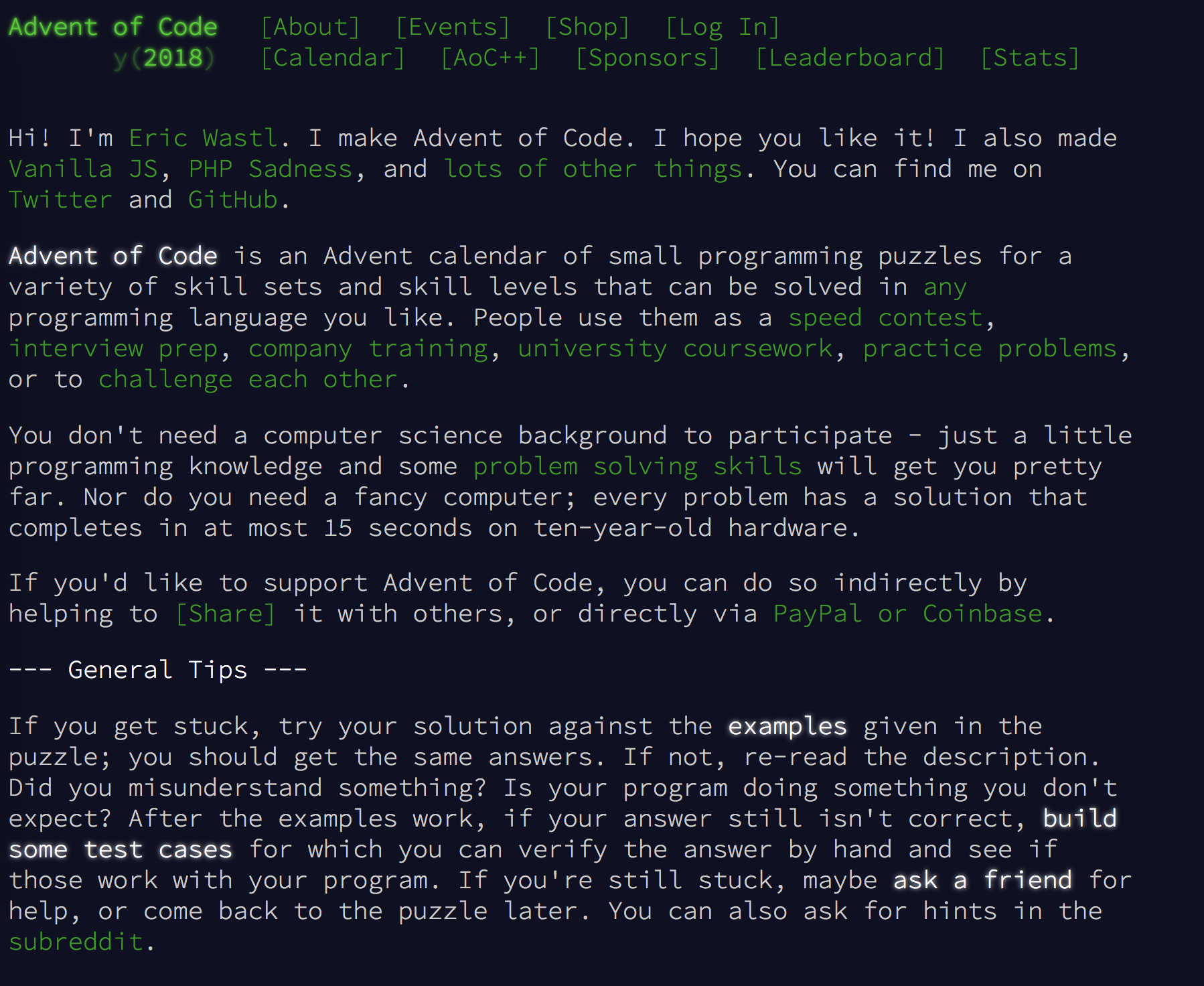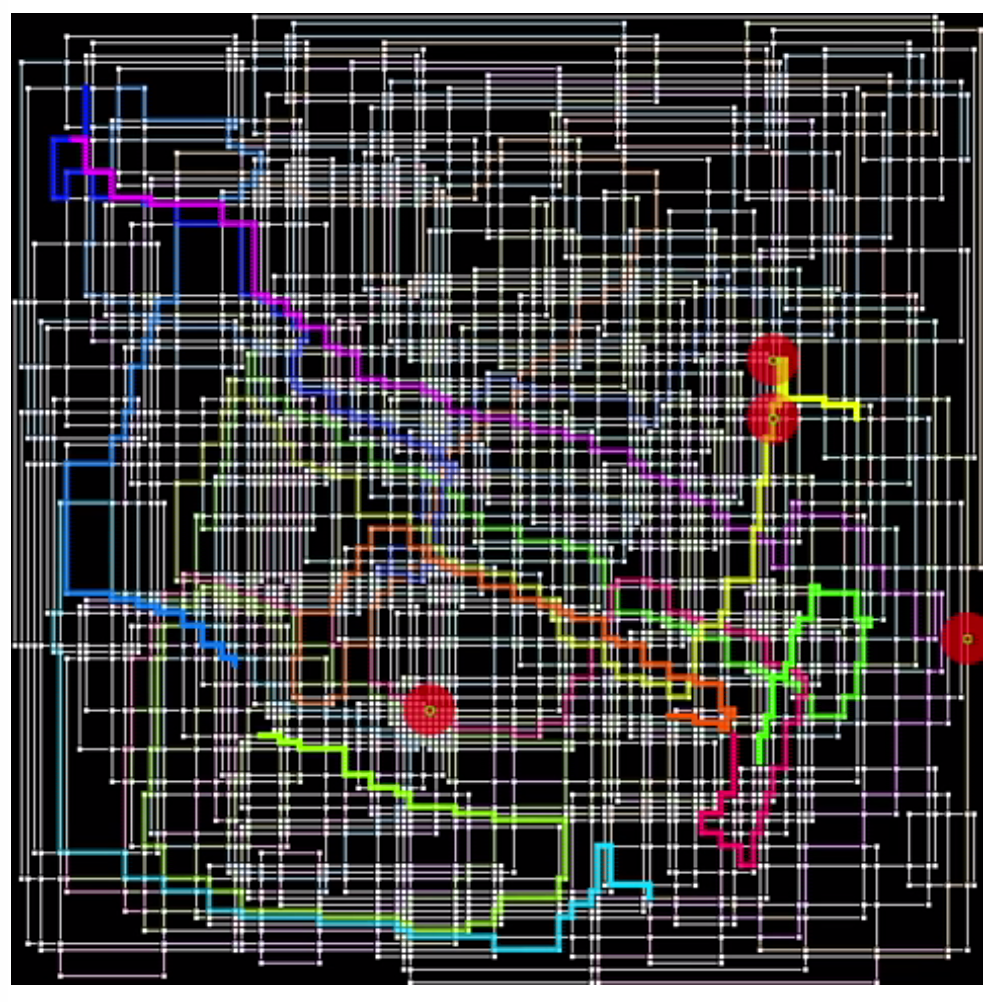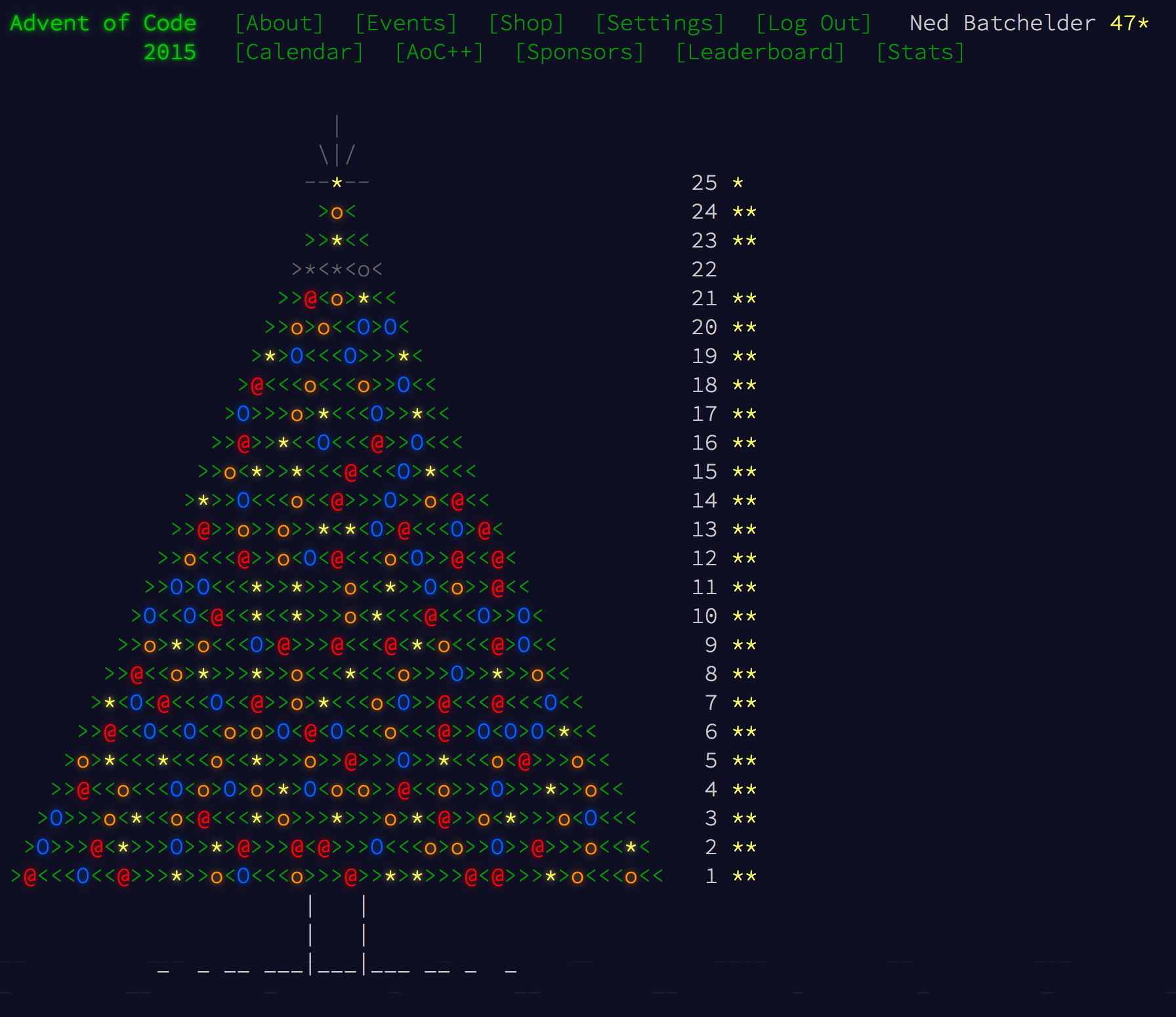Blah blah blah.



Blah blah blah.



seed = 'foo'
md5('foo0') → a1b2c3d4
md5('foo1') → 9a8b7c6d
md5('foo2') → ff0ee1dd
md5('foo3') → a1bbb3d4 # Triple b!
md5('foo4') → 987abc65
md5('foo5') → a32cac67
md5('foo6') → 4e60f111
...
md5('foo241') → 3abbbbb0
# 3 is a key!
seed = 'foo'
md5('foo0') → a1b2c3d4
md5('foo1') → 9a8b7c6d
md5('foo2') → ff0ee1dd
md5('foo3') → a1bbb3d4 ✓
md5('foo4') → 987abc65
md5('foo5') → a32cac67
md5('foo6') → 4e60f111 # Triple 1!
md5('foo7') → c1bd8e78
...
md5('foo1006') → f5e02b34
# 6 is not a key....
seed = 'foo'
md5('foo0') → a1b2c3d4
md5('foo1') → 9a8b7c6d
md5('foo2') → ff0ee1dd
md5('foo3') → a1bbb3d4 ✓
md5('foo4') → 987abc65
md5('foo5') → a32cac67
md5('foo6') → 4e60f111 ✗
md5('foo7') → c1bd8e78
md5('foo8') → d8a9112f
...
# until we find the 64th key
def salted_hash(salt, i):
bytes = f"{salt}{i}".encode("ascii")
return hashlib.md5(bytes).hexdigest()
>>> salted_hash("something", 17)
'594a263646d6b3c5db804b28f62cbc67'
def triple(s):
# Return a triple character, or None.
m = re.search(r"(.)\1\1", s)
if m:
return m.group(1)
>>> triple("what aaa something")
'a'
>>> triple("hello world")
>>> triple("111 22222 333")
'1'
def is_key(salt, candidate):
# Is `candidate` a key?
h = salted_hash(salt, candidate)
t = triple(h)
if t is None:
return False
# We have a triple. Look ahead for a quint.
for check_ahead in range(1, 1001):
h2 = salted_hash(salt, candidate + check_ahead)
if t*5 in h2:
return True
return False
def nth_key(salt, n):
# Find the `n`th key starting with `salt`.
num_keys = 0
for candidate in itertools.count():
if is_key(salt, candidate):
num_keys += 1
if num_keys == n:
return candidate
INPUT = 'zpqevtbw' # Yours will be different!
k64 = nth_key(INPUT, 64)
print(f"Part 1: the 64th key is at index {k64}")
$ python part1.py
Part 1: the 64th key is at index 16106
def test_triple():
assert triple("helloaaathere") == "a"
$ pytest part1.py
================ test session starts ==================
platform darwin -- Python 3.6.5, pytest-4.0.1, py-1.7.0
rootdir: /Users/ned/prz/adventures, inifile:
collected 1 item
part1.py . [100%]
============== 1 passed in 0.01 seconds ===============
@pytest.mark.parametrize("s, t", [
("hello there all", None),
("aaa", "a"),
("0123345xxx112315zzz124xx", "x"),
])
def test_triples(s, t):
assert triple(s) == t
$ pytest part1.py
================= test session starts =================
platform darwin -- Python 3.6.5, pytest-4.0.1, py-1.7.0, pluggy-0.8.0
rootdir: /Users/ned/prz/adventures, inifile:
collected 4 items
part1.py .... [100%]
============== 4 passed in 0.01 seconds ===============

@pytest.mark.parametrize("salt, num, result", [
('abc', 17, False), # no triple
('abc', 18, False), # triple, no quint
('abc', 39, True), # a key
('abc', 92, True), # a key
('abc', 22727, False), # near a key
('abc', 22728, True), # a key
('abc', 22729, False), # near a key
])
def test_is_key(salt, num, result):
assert is_key(salt, num) == result
def test_nth_key():
assert nth_key("abc", 64) == 22728
collected 12 items
part1.py ............ [100%]
$ pytest part1.py
================= test session starts =================
collected 12 items
part1.py ..F......... [100%]
====================== FAILURES =======================
_________________ test_triples[aaa-b] _________________
s = 'aaa', t = 'b'
@pytest.mark.parametrize("s, t", [
("hello there all", None),
("aaa", "b"),
("0123345xxx112315zzz124xx", "x"),
])
def test_triples(s, t):
> assert triple(s) == t
E AssertionError: assert 'a' == 'b'
E - a
E + b
part1.py:28: AssertionError
========= 1 failed, 11 passed in 3.80 seconds =========
$ time python part1.py
Part 1: the 64th key is at index 16106
real 0m2.945s
def salted_hash_2017(salt, i):
val = f"{salt}{i}"
for _ in range(2017):
val = hashlib.md5(val.encode("ascii")).hexdigest()
return val
$ time python naive_part2.py
Part 2: the 64th key is at index 22423
real 86m33.516s
HASHES = 0
def salted_hash(salt, i):
global HASHES
HASHES += 1
bytes = f"{salt}{i}".encode("ascii")
return hashlib.md5(bytes).hexdigest()
$ python part1_counted.py
Part 1: the 64th key is at index 16106
Total of 1,661,356 hashes
CACHE = {}
def salted_hash_2017(salt, i):
val = val0 = f"{salt}{i}"
if val0 in CACHE:
return CACHE[val0]
for _ in range(2017):
val = hashlib.md5(val.encode("ascii")).hexdigest()
CACHE[val0] = val
return val
$ time python gcache.py
Part 2: the 64th key is at index 22423
real 0m54.688s
def make_cached_hasher(iterations):
cache = {}
def hasher(salt, i):
val = val0 = f"{salt}{i}"
if val0 in cache:
return cache[val0]
for _ in range(iterations):
val = hashlib.md5(val.encode("ascii")).hexdigest()
cache[val0] = val
return val
return hasher
salted_hash_2017 = make_cached_hasher(2017)
def cached(func):
cache = {}
def wrapped(*args):
if args in cache:
return cache[args]
ret = func(*args)
cache[args] = ret
return ret
return wrapped
@cached
def salted_hash_2017(salt, i): # from naive_part2.py
val = f"{salt}{i}"
for _ in range(2017):
val = hashlib.md5(val.encode("ascii")).hexdigest()
return val
>>> nums = [1, 2, 3]
>>> for num in nums:
... print(num)
1
2
3
>>> num_iter = iter(nums)
>>> next(num_iter)
1
>>> next(num_iter)
2
>>> next(num_iter)
3
>>> def countdown(num):
... while num >= 0:
... yield num
... num -= 1
>>> for n in countdown(3):
... print(n)
3
2
1
0
def hashes_2017(salt):
for i in itertools.count():
yield salted_hash_2017(salt, i)
def test_hashes_2017():
them = hashes_2017("abc")
assert next(them) == 'a107ff634856bb300138cac6568c0f24'
assert next(them) == '65490b7e1ceeff8ade55d803c02bf553'
assert next(them) == 'dff53117a11213b0e5c4cf63fe3c5198'
md5('foo0') → a1b2c3d4
md5('foo1') → 9a8b7c6d
md5('foo2') → ff0ee1dd
md5('foo3') → a1bbb3d4 # Triple b!
md5('foo4') → 987abc65
md5('foo5') → a32cac67
md5('foo6') → 4e60f111
md5('foo7') → c1bd8e78
md5('foo8') → b2b9a2e9
...
md5('foo4') → 987abc65
md5('foo5') → a32cac67
md5('foo6') → 4e60f111 # Triple 1!
md5('foo7') → c1bd8e78
...
def test_peekable():
p = PeekableIterable(itertools.count())
pi = iter(p)
assert next(pi) == 0
assert next(pi) == 1
assert p.peek_ahead(1) == 2
assert p.peek_ahead(100) == 101
assert next(pi) == 2
assert p.peek_ahead(1) == 3
class PeekableIterable:
"""Peek ahead into infinite iterables"""
def __init__(self, source):
self.source = iter(source)
self.lookahead = collections.deque()
def __iter__(self):
while True:
if self.lookahead:
yield self.lookahead.popleft()
else:
yield next(self.source)
def peek_ahead(self, index):
assert index > 0
while index > len(self.lookahead):
self.lookahead.append(next(self.source))
return self.lookahead[index-1]
def key_indexes(salt):
"""Produce all key indexes from `salt`."""
p = PeekableIterable(hashes_2017(salt))
for index, hash in enumerate(p):
t = triple(hash)
if t:
for i in range(1, 1001):
ahead = p.peek_ahead(i)
if t*5 in ahead:
yield index
def test_key_indexes():
ki = key_indexes("abc")
assert next(ki) == 10
def n_keys(salt, n):
all_keys = key_indexes(salt)
return list(itertools.islice(all_keys, n))
if __name__ == "__main__":
INPUT = 'zpqevtbw' # Yours will be different!
first_64 = n_keys(INPUT, 64)
k64 = first_64[-1]
print(f"Part 2: the 64th key is at index {k64}")
